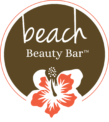No doubt about it: prescription retinols have taken on superhero status in the skincare routines of women everywhere. The purest form of vitamin A, retinol fights acne, does away with wrinkles, and pumps up collagen — it’s like having your own personal superpower.
…Or is it?
Maybe you understand the basics — hydration good, dryness bad — but once the conversations get into more complicated things like retinoids, acne treatments might feel a little overwhelming. We get it.
Prescription retinols have a reputation for making all of our skin dreams come true. But is there a dark side of retinol creams we don’t know about?
What Are Retinoids?
Retinoids actually go by several names: retinol, retinoids, retin-A compounds or Vitamin A. They’re all very similar.
Essentially, they’re chemical exfoliants. In the topical application, retinoids do two things: help remove the dead, dried out layers of dead skin cells on top of your skin (which contribute to problems and can make you look wrinkly), and stimulate the production of collagen underneath the skin.
The joint result of this is that the layer of older, dead skin is removed. And the younger skin underneath gets a boost to grow.
That’s a benefit in and of itself, but when it comes to acne, this can be an effective treatment for exfoliating your skin. This Helps your struggling pores shed those dried out cells and move along to the newer stuff.
Pore Clogging Ingredient Used In Retinol Creams
Are you suffering from never-ending blackheads, pimples, and acne no matter what you do?
The answer might lie in the ingredient list on your prescription retinol cream. When pores become clogged from an irritating ingredient such as lanolin they attempt to flush themselves out. Resulting in pimples, blackheads, and acne.
Lanolin is a natural ingredient produced by sheep’s skin to keep their wool soft. Just like we produce sebum to keep our skin soft.
Lanolin is used in cosmetics and skincare products like retinoid creams to provide softness and miniaturization, but unfortunately, it’s highly comedogenic! It might also be referred to as acetylated lanolin alcohol, ethoxylated lanolin, PEG 16 lanolin.
In addition to lanolin, Tretnoin and other prescription retinols often contain isopropyl myristate and other pore clogging ingredients…basically eliminating the goodness that vitamin A can do for acne.
Do not ever put anything on your skin or your hair without checking the ingredients first, even if it says “won’t clog pores” or “noncomedogenic” on the bottle. No government agency oversees this so skincare companies can claim their products promote clear skin and have pore cloggers in their ingredient deck.
Choosing a Retinol Face Cream
Choose a non-pore clogging retinol: Our A Plus Refining Serum is our most sought-after exfoliating serum because of the powerful punch it packs into this liquid gold. It isn’t only a retinol. It’s a blend of vitamin A propionate, peptides, mandelic acid, lactic acid, kojic acid, lactic acid, and salicylic acid. Seriously…acne has met it’s match with our A Plus Refining Serum.
Start slow: When you first start using a retinol product, expect to have dry or flaky skin during the first one or two weeks, particularly around your eyes, nose, and mouth. After that, your skin should adapt. Start by first applying a pea-sized amount every other night. Still too much? Drop back to every third night. Eventually, you can work up to nightly use once you know your skin can handle it.
Don’t forget SPF: Retinol makes your skin more sensitive to the sun, especially if you decide to use one during the day. If you don’t protect your face with sunscreen, you may be setting yourself up for more damage like burning or hyper-pigmentation in the long run. You should always use SPF during the day, even if you applied your retinol cream at night.
The Bottom Line
Life with acne can be a confusing maze of topicals, treatments, scrubs, moisturizers and astringents that seems impossible to navigate. It’s up to each person to decide if the powerful qualities of retinol and other retinoids are worth the risks of using. If you decide retinol is for you, be sure to consider the option without pore clogging ingredients.
Is your retinol causing your breakouts?
Remember to apply treatments at night if possible, and always practice strict sun avoidance when using these powerful ingredients on your skin. Schedule your initial consultation to take the first step in your clear skin journey.
Cheers to clear!
Rene






